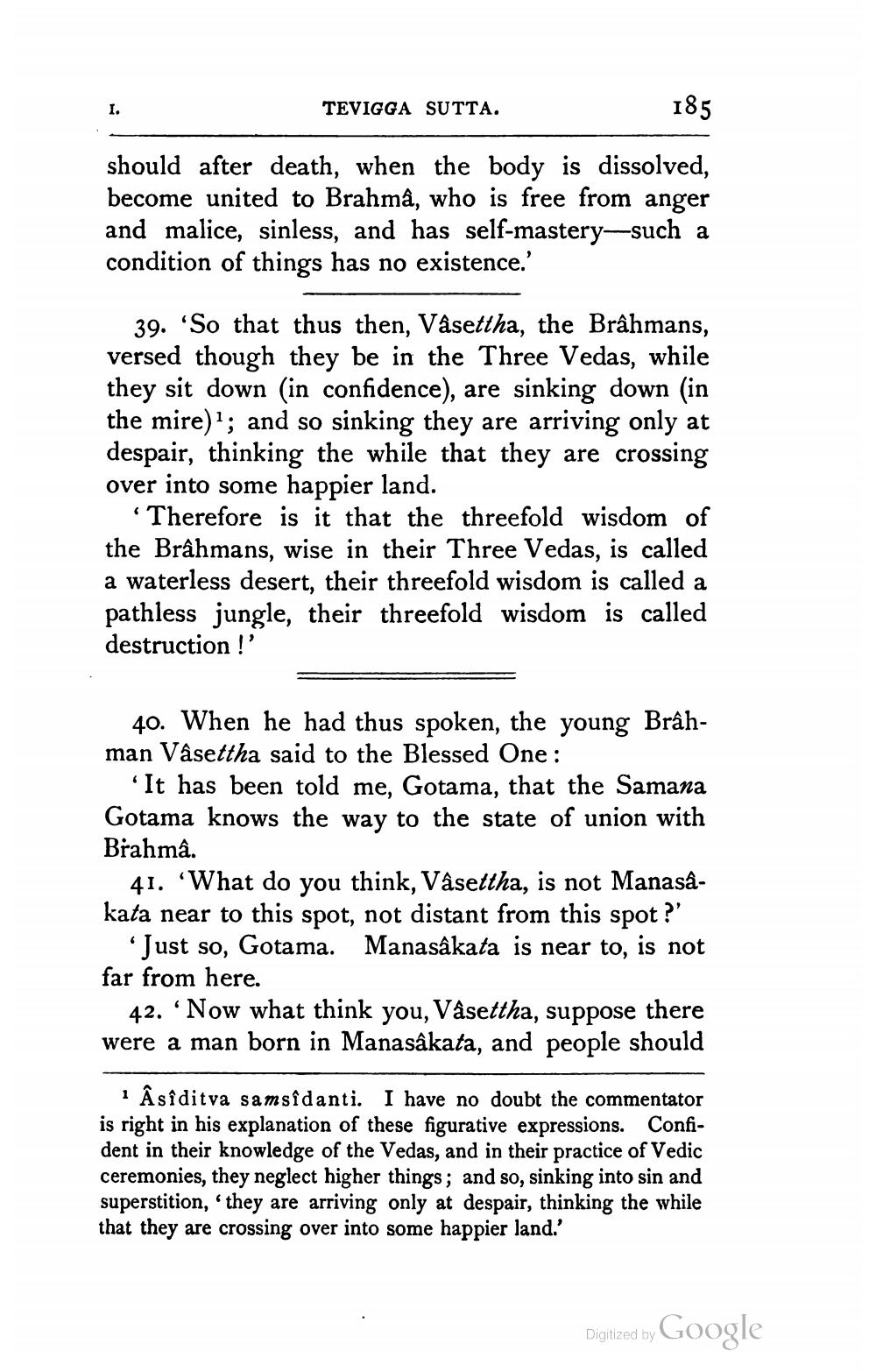________________
185
should after death, when the body is dissolved, become united to Brahmâ, who is free from anger and malice, sinless, and has self-mastery-such a condition of things has no existence.'
I.
TEVIGGA SUTTA.
39. 'So that thus then, Vâsettha, the Brâhmans, versed though they be in the Three Vedas, while they sit down (in confidence), are sinking down (in the mire)1; and so sinking they are arriving only at despair, thinking the while that they are crossing over into some happier land.
'Therefore is it that the threefold wisdom of the Brahmans, wise in their Three Vedas, is called a waterless desert, their threefold wisdom is called a pathless jungle, their threefold wisdom is called destruction!'
40. When he had thus spoken, the young Brâhman Vâsettha said to the Blessed One:
'It has been told me, Gotama, that the Samana Gotama knows the way to the state of union with Brahmâ.
41. 'What do you think, Vâsettha, is not Manasâkata near to this spot, not distant from this spot?'
'Just so, Gotama. Manasâkata is near to, is not far from here.
42. Now what think you, Vâsettha, suppose there were a man born in Manasâkata, and people should
1 Âsîditva samsidanti. I have no doubt the commentator is right in his explanation of these figurative expressions. Confident in their knowledge of the Vedas, and in their practice of Vedic ceremonies, they neglect higher things; and so, sinking into sin and superstition, they are arriving only at despair, thinking the while that they are crossing over into some happier land.'
Digitized by
Google




